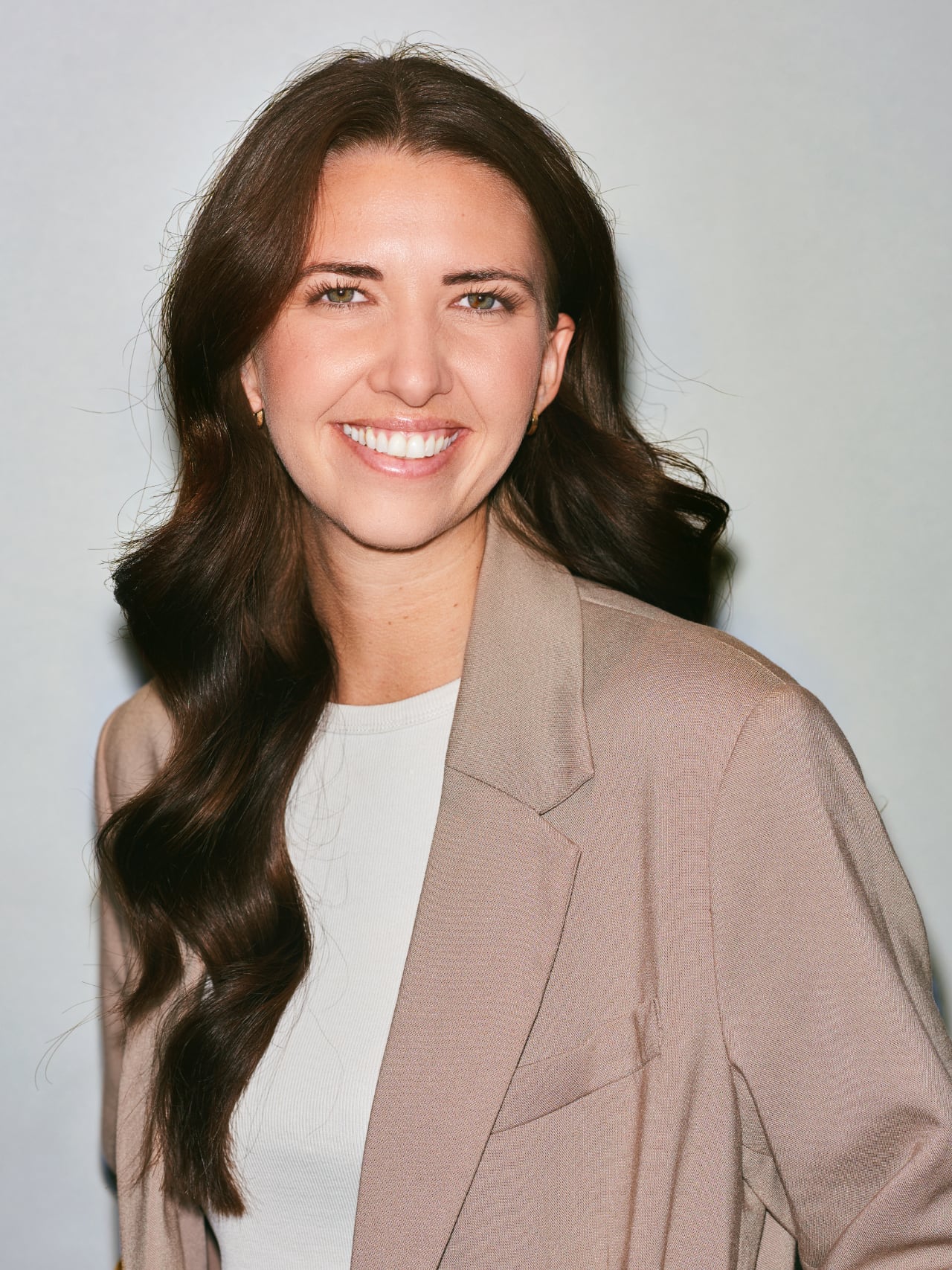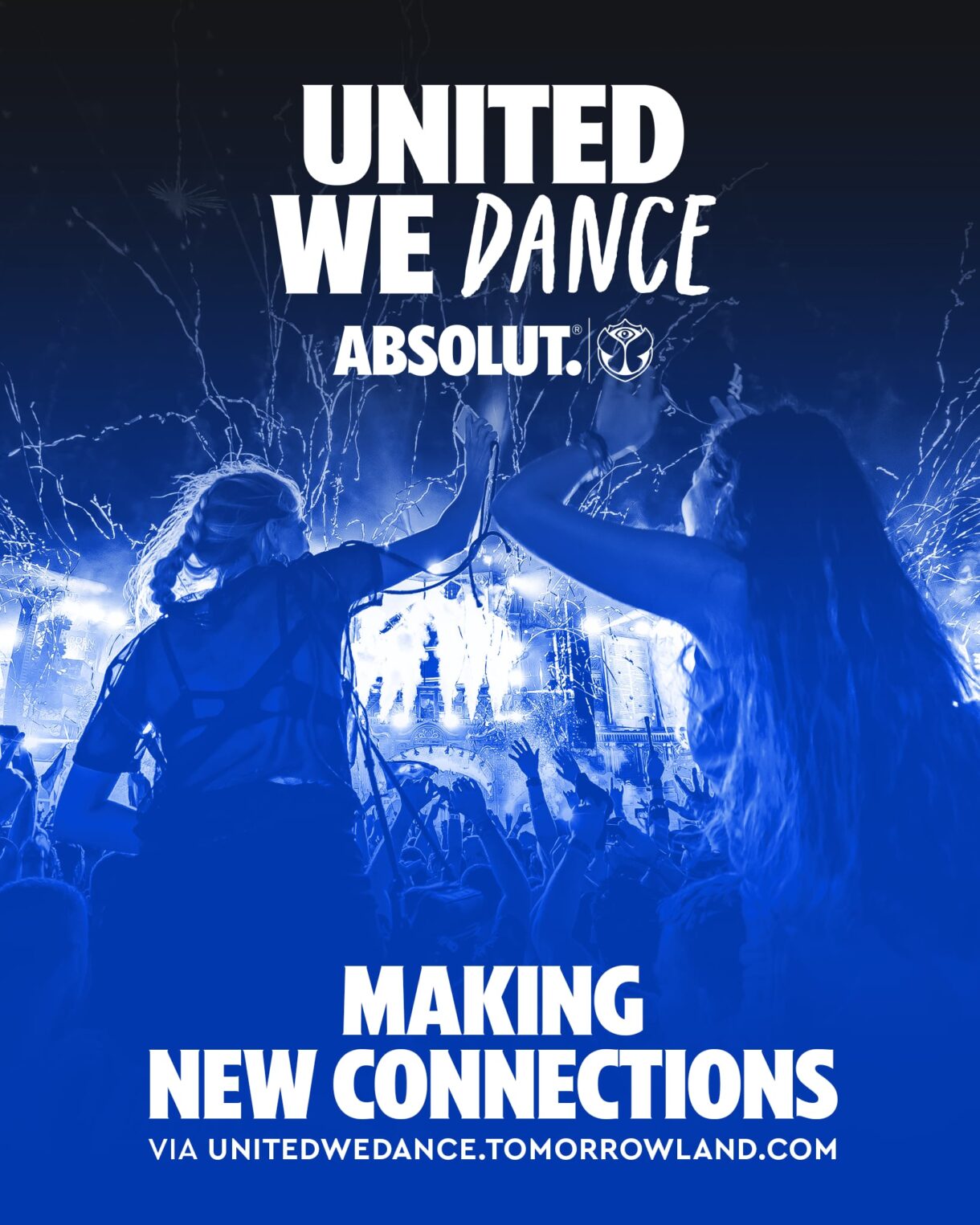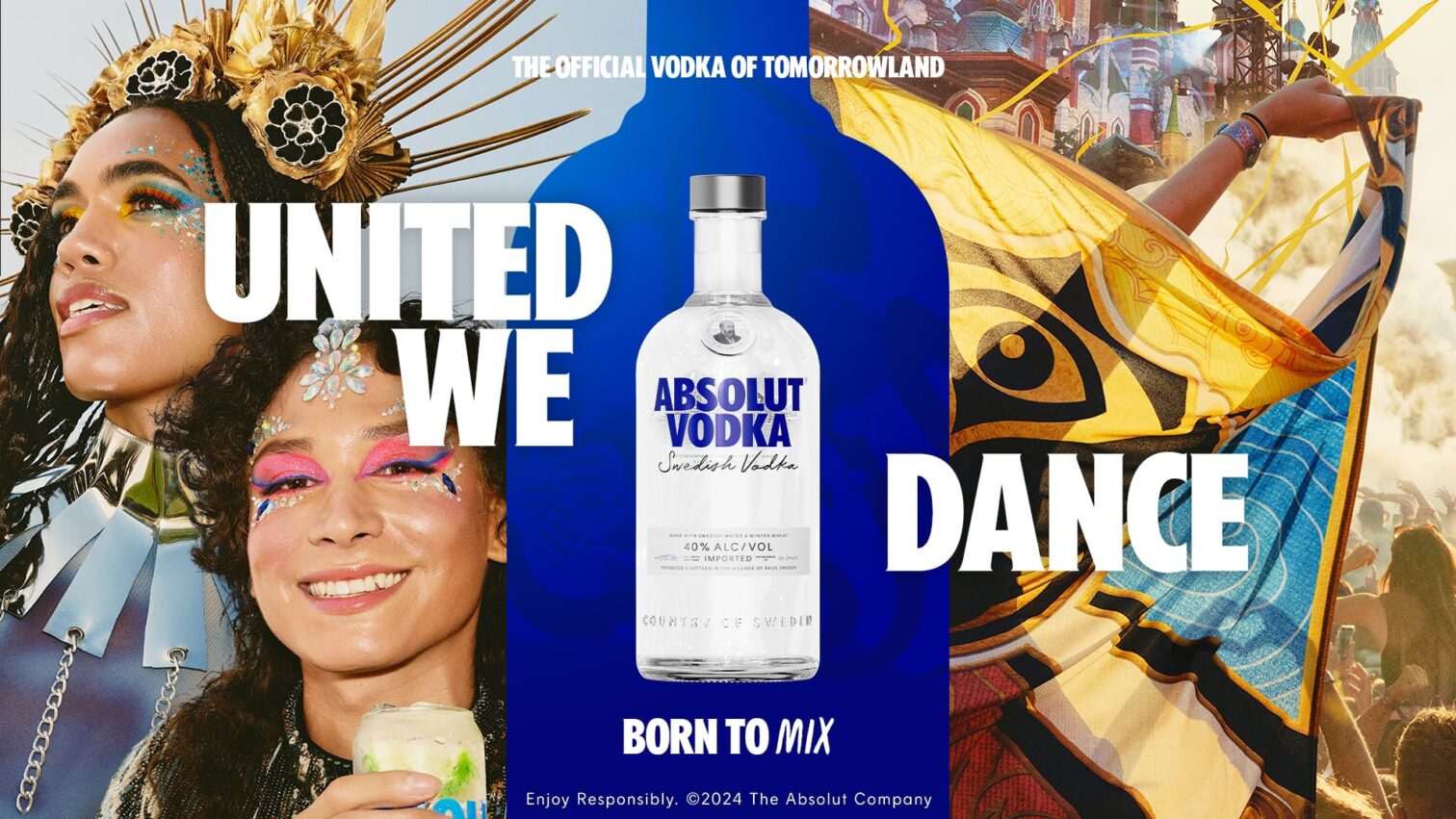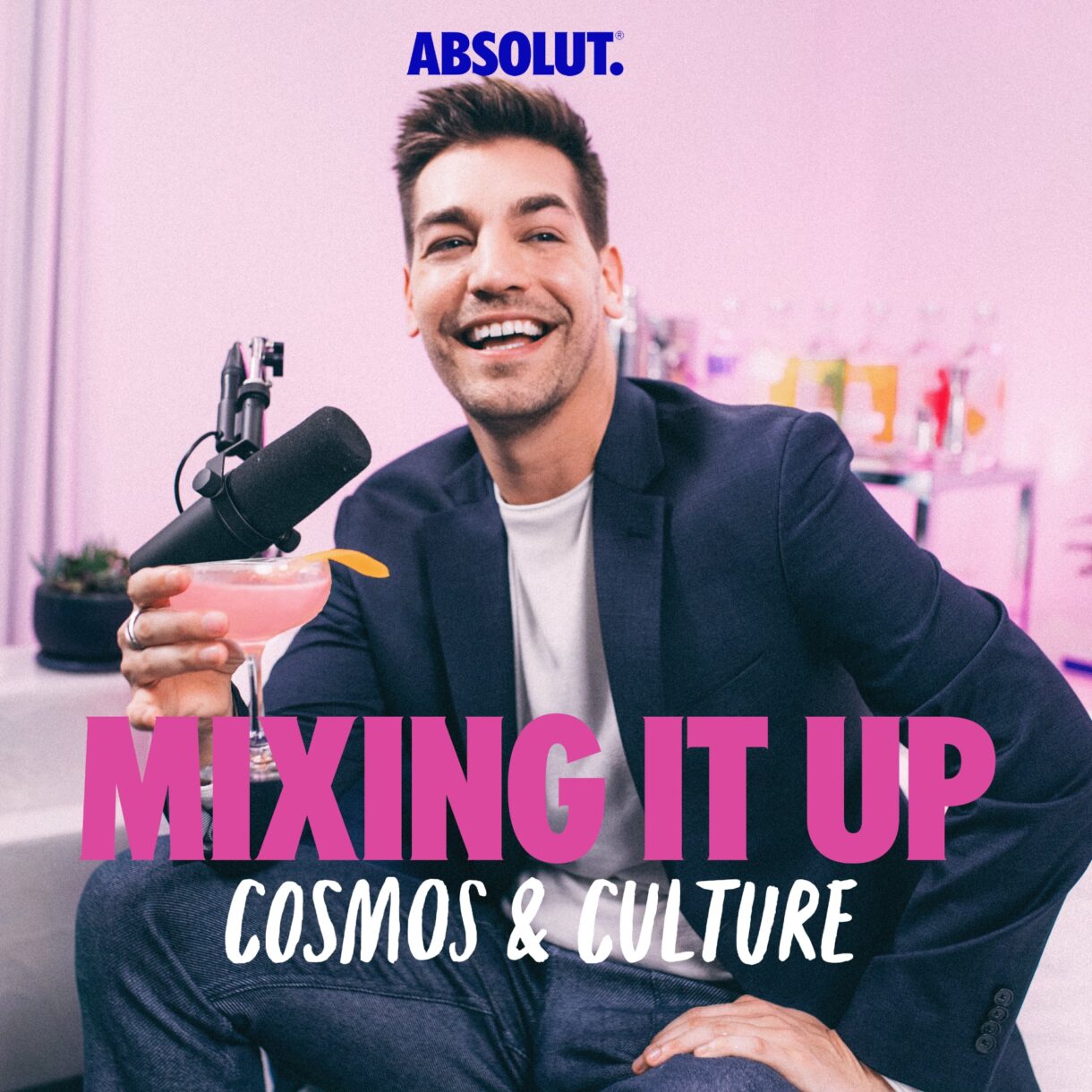Absolut and Tomorrowland team up to foster social connection
You can be in a crowd of thousands of people but still feel lonely and isolated because you are not connected. Absolut and Tomorrowland’s partnership (now in its sixth year) seeks to address the growing problem of loneliness at this year’s music festival by providing a sense of belonging as part of its United We Dance platform.

The bold initiative will offer both onsite and online activities from podcasts to daily speed networking events to help facilitate cross-cultural exchange and to help solo festivalgoers the opportunity to connect. Learn more about the initiative in this interview with Annika Skohg – Senior Brand Manager – Experiences – in the Absolut Vodka marketing team, who is heading up the partnership program together with her friends at Tomorrowland.
How did Absolut’s partnership with Tomorrowland come about?

Our long-term partnership with Tomorrowland goes back to 2017 when we were mainly partnering with Tomorrowland Belgium on a local level. Our partnership has evolved and today we stand as a very proud global partner and the official vodka across the majority of Tomorrowland’s events from the marquee festival in Belgium, to TML Winter in France, Brazil, Dubai and more.
What is the partnership’s United We Dance platform?
In 2021, we established the United We Dance; a co-created platform that brings our shared values to life. It is front and centre of our shared mission to create a more diverse and inclusive tomorrow through the universal language of music.
What was the rationale behind the formation of a D&I committee?
TML is one of the leading global festivals while Absolut has been an ally of underrepresented communities since the early 1980s. Together, we felt that not only did we have an opportunity, but aresponsibility to start taking on some of these topics and issues to drive change. So, in 2022, we implemented a campaign that highlighted underrepresented artists through creative videos across social, press and other channels – providing them with a global platform.
However, we wanted to make a long-term commitment to the industry and beyond, which is when we created the D&I committee. Its mission is to inspire the industry and the world to create a more equal, diverse tomorrow. Each year the committee decides upon meaningful actions to be carried out in line with a theme derived from industry research. The committee is made up of representatives from Absolut and Tomorrowland, an industry expert, a politician and a global DJ.
How did you come up with the idea of tackling loneliness at this year’s festival?
Every year, we examine global research to drive an annual theme of action. We hold in-personworkshops and meetings with the committee members, to determine which themes are most crucial in society at the moment, and best align with our mission.
This year the committee were struck by the declaration made by the World Health Organisation that loneliness is a critical global health threat. The study also found that the ‘loneliness rates’ are highest in young adults aged 19 to 29, with 27 per cent reporting they feel very or fairly lonely and that it affects Black, Asian and Minority Ethnic (BAME) people more.
Why is the Tomorrowland Festival in a position to tackle loneliness?
We want to inspire the world to create a more equal, diverse tomorrow. By leveraging one of the world’s largest music festivals and the global movement of Tomorrowland, we’re hopeful that together, we can help break the ice and inspire others to do the same. Festivals and events can be the ultimate platform for meeting people; human connection has been linked to social well-being, assisting in reducing loneliness and increasing social connectedness. We’re dedicated to creating a space at this year’s festival where everyone feels welcome to celebrate, connect, and enjoy.
That said, we did identify some challenges in our research, which included increased loneliness during the pre-phase and after-phase of large events and festivals. Subsequently, our programme starts before the festival to help bring solo travellers and other individuals together before arriving at the festival. We will then continue to provide support during and after the festival, as post-festival depression is common for large events like Tomorrowland.

Can you explain how you hope to combat loneliness at the festival?
This year’s initiative is an awareness and action-oriented programme that will operate both online and offline, addressing barriers to unity before, during, and after the festival to ultimately combat loneliness.
Festivalgoers can sign up to a WhatsApp group where they can connect across cultures and we will then provide them with details of on-site activities. These include cultural exchange speed dating, breakfast (on a huge table that seats 75 people!) with fellow festivalgoers, exclusive guest sets, and more. They will be given wearable tokens on-site to celebrate connection and inclusivity, ensuring that everyone feels welcome at the festival.
People enjoying the festival from afar can tune in to our exclusive Tomorrowland artist podcast series, with some of the largest DJs in the world including Armin Van Buren and Laidback Luke. This six-episode series is dedicated to human connections, challenges of self-expression and loneliness. Listeners will get to know some of their favourite Tomorrowland artists on a more personal level as we dive into conversations about human connection, loneliness, and personal stories that have helped them navigate these issues.
The first episode features global DJ Sunnery James, a member of our D&I committee who helped inspire the podcast idea at one of our workshops when he revealed that loneliness is a challenge that artists struggle with, yet rarely discuss. Despite performing in front of thousands, he says it can be very lonely performing and that self-expression on stage is not a given. He revealed that some artists have a WhatsApp group to share their experiences and believes that by opening up via a podcast, artists can help break the ice in a meaningful way to inspire younger generations.
What do you hope to achieve with the initiative and how will you measure its success?
There are a few different achievements we’re hoping for from the various initiatives, but ultimately loneliness is a global threat and by no means are we able to tackle this on our own, but we hope that this action will inspire the industry and beyond to do similar initiatives as well so we can drive positive change together.
More specifically, we’re hopeful that our on-site activities will contribute to and support many meaningful connections beyond differences between fellow festival goers and festival goers. We also hope to break the ice; to create a sense of normality and belonging for the younger generation throughour podcasts with some of the largest DJs in the world talking candidly on these vulnerable topics.
When it comes to measuring its impact, we will assess success quantitively (via message spread, social engagement, sign-ups and participation) and qualitative results we’ll receive from word-of-mouth in the communities and new community during and after the festival, along with a post-festival survey.

